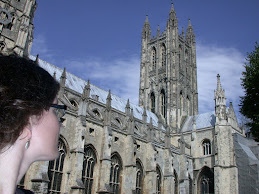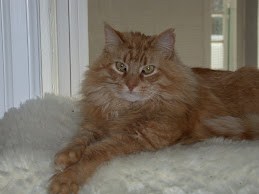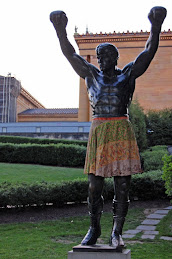Browsing the books shelves of our local library, I found a new biography about John Donne, who wrote intellectually muscular poetry. I took down the hefty book and remembered that Donne struggled with his conversion to the Church of England, and tried to defend that conversion as not made for expediency but for true righteousness. I also recalled that when King James I appointed him Dean of St. Paul's Cathedral in 1621, some controversy existed because of Donne's background (his family was Roman Catholic), his early poetry (rebellious, erotic, and unconventional), and his marriage (he married his patron Lord Egerton's niece in secrecy). But I remembered Donne as a great doubter and questioner -- who defended suicide in one tract, who questioned the existence and presence of God. And also he lived at a time when England was dominated by religious antagonism and hatred, because the official religion of the state was Protestantism and Roman Catholics were persecuted and shut out of public offices. Everyone had to attend Protestant services and if someone did not, that person was suspected of being a Catholic and subject to questioning.
As I remembered these broad characteristics of Jacobean England, I was reminded of a NPR program, Krista Tippet's "Speaking of Faith" in which she interviewed Deborah Michael Hecht who wrote a history of doubt. Hecht argues that doubt has a great and long history beginning in Ancient Greece and that doubt about God and questions about God coincide with periods of cosmopolitanism and social upheaval. That description certainly seemed to fit England during Donne's lifetime and so I decided to read this biography by John Stubbs.
Stubb's biography of Donne is not written for the casual reader, but the reader who likes a challenge. In fact, his biography seems modeled on one of Donne's poems -- it demands patience as the narrative unfolds but the reader is rewarded by wonderful pictures of everyday life in London -- in the city, in the country, at the court, and among the poor and persecuted. Stubbs has written one of the most readable accounts of the tense relationship between Protestants and Roman Catholics in Jacobean England. He also shows how fine the line of distinction could be between the two religions.
Stubbs had to weave in Donne's own words -- from poetry, letters, sermons, etc. Given that all of Donne's poetry is undated, he takes a conservative and balanced approach to matching certain poems with certain events in Donne's life. For example, he matches "The Flea" to the time he was seeing Anne More clandestinely before their marriage. He assigns most of the Jack Donne poetry to Donne's twenties before he met More while serving as secretary to Lord Thomas Egerton. I guess the greatest tribute I can give Stubb's analysis and contextualization of Donne's poetry is that I have gone back and reread some of the poems he analyzes and I want to read Donne's essay "Biathanatos."
So if I had not heard Hecht's theory about doubt thriving in a cosmopolitan, questioning setting I might not have decided to read Stubbs' biography -- and I would not have met again one of my favorite poets.









No comments:
Post a Comment